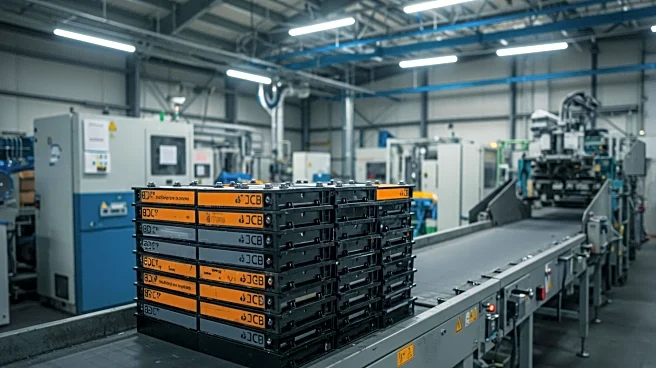What's Happening?
A recent study conducted by researchers at Edith Cowan University in Australia has revealed that used lithium batteries, often deemed unfit for electric vehicles, still contain significant amounts of usable lithium. The study, published in the Journal of Environmental Management, suggests that these batteries retain nearly 80% of their lithium capacity, which could be tapped into as a sustainable alternative to traditional lithium mining. The researchers argue that recycling these batteries not only provides access to lithium but also allows for the recovery of other valuable materials such as nickel and cobalt. The study highlights the environmental benefits of recycling, noting that it produces 61% less carbon emissions and uses 83% less energy and 79% less water compared to mining.
Why It's Important?
The findings of this study have significant implications for the energy sector, particularly in the context of the growing demand for lithium-ion batteries. As the global market for these batteries is expected to grow at an annual rate of 13%, the potential for recycling to provide a sustainable source of lithium is substantial. This could reduce the environmental impact associated with lithium mining, which is known for its high carbon emissions and resource consumption. Additionally, the development of recycling infrastructure could create new economic opportunities and jobs within the energy sector. By investing in recycling technologies, industries could reduce their reliance on mining and contribute to a more sustainable and circular economy.
What's Next?
The study suggests that with the right investments in infrastructure, the recycling of lithium batteries could become a profitable niche within the energy sector. This would require advancements in recycling technologies and processes to efficiently extract lithium and other materials from used batteries. As the demand for lithium continues to rise, industries and governments may need to prioritize the development of recycling facilities to meet future needs. The researchers emphasize the importance of aligning recycling efforts with technological advancements in industries that rely on lithium, ensuring that the supply chain remains sustainable and environmentally friendly.








